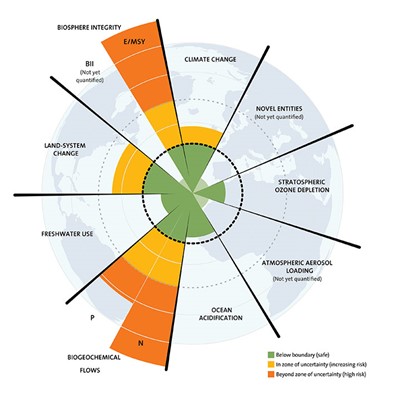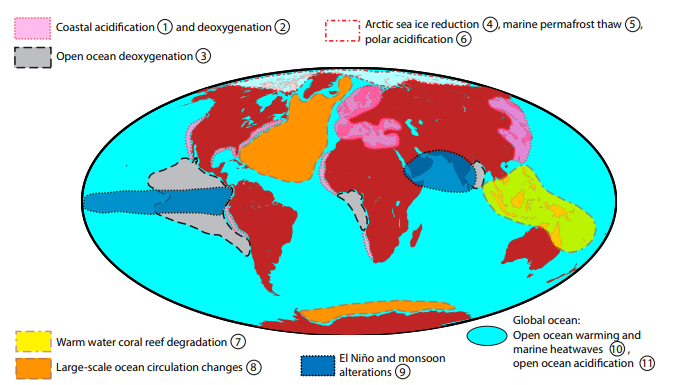Climate change is already exacerbating existing environmental stressors through changes to the fundamental drivers of ecosystems (e.g., temperature, precipitation, seasonal cycles, and biogeochemistry). These changes impact processes such as deoxygenation, nutrient and carbon cycling, respiration rates, stratification, and ocean circulation, upwelling and mixing, all of which have significant implications for the prevalence, severity, and duration of stressors such as harmful algal blooms, ocean acidification, and hypoxia events.
These are issues of global significance which, if left unchecked, will have serious social, economic, and environmental impacts. By employing NBOT, we aim to remediate these stressors and facilitate the regeneration, protection, and improved resilience of freshwater and marine aquatic ecosystems, safeguarding the valuable social, economic, and ecosystem services they provide.

Visual depiction of the current state of the Earth’s “planetary boundaries” which are thresholds past which human activities will lead to “irreversible and abrupt” climate damage. Nitrogen (N) and Phosphorous (P) are depicted as “high risk” under the biogeochemical flows category. Source: Food and Agriculture Organization of the United Nations (FAO). 2018. Pollutants From Agriculture a Serious Threat to World’s Water.
We must increase the resilience of these critical ecosystems in the face of future climate scenarios. Such protection is vital so as to allow the ocean to recover from human impacts, help mitigate climate change, safeguard marine biodiversity, and continue to play its life-giving role.

Illustration of the approximate areas which are candidates for high-probability high-impact marine tipping elements concerning ocean warming, deoxygenation, and acidification as well as their impacts. Source: Heinze, et al., 2021